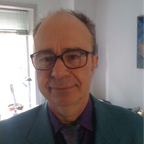SOLD OUT
This course is now fully booked but we will be rerunning it in July. Book here.
These two sessions are for translators who have worked full-time for at least one year, whether or not they revise the work of others. Both sessions run from 2-5pm GMT.
When you check your own draft translation, or someone else’s translation, are you aware of using any particular principles in order to decide whether corrections or improvements are needed? Do you have definite procedures you consistently follow when revising? Do you think your revision work is efficient (you are not wasting time)? This session is designed to help you clarify your thinking about revision principles and procedures.
Here are some of the questions we will look at:
- How do I integrate self-revision into the translation process? (checking while drafting versus checking after drafting)
- What is quality for the purposes of revision?
- Should translations be checked by someone other than the translator?
- How can I maximize the number of errors I spot? (You can’t correct a mistake until you’ve noticed it!)
- When is a change necessary (and when can you leave the draft as is)?
- What are the benefits and risks of comparative re-reading? of unilingual re-reading?
- Shall I revise on paper? on screen? a combination?
- How much attention should I devote to creating consistency in the translation?
- What about revising wordings from Translation Memory and Machine Translation?
- How can I speed up my revision work?
There will be slideshow presentations on the various topics, interspersed with both text-based and scenario-type exercises (some in small groups), and opportunities for discussion.
Participants will be asked to spend about 1-2 hours before the first session preparing a self-revision exercise, which they will receive a week or so before that session.
ITI members: £60 +VAT
Non-members: £90 +VAT


